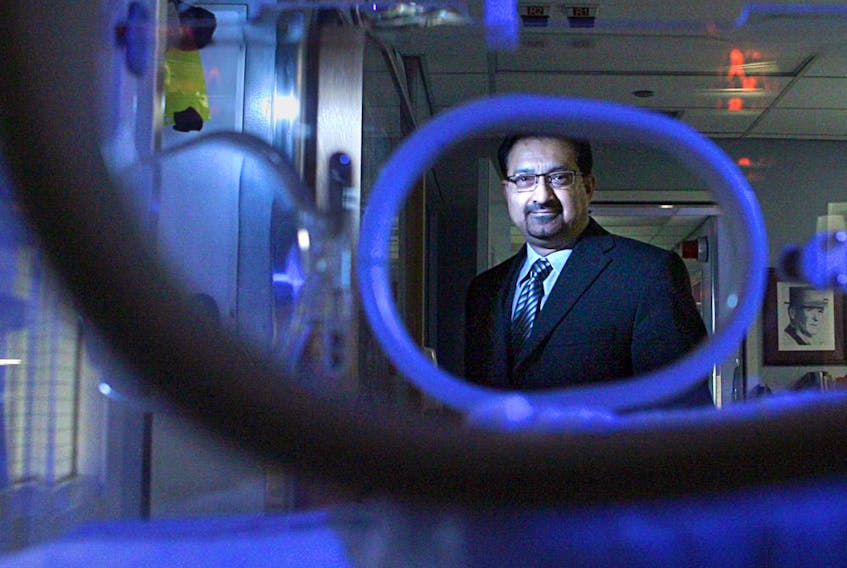Neonatal medicine and its associated technology have advanced so far that The Ottawa Hospital can now rescue babies as young as 22 weeks old.
“What we’ve done, we’ve actually pushed the survival frontier back further now,” said Dr. Pradeep Merchant, site chief of The Ottawa Hospital’s division of neonatology. “A few years ago, it was 24 weeks’ gestation. Now, we are regularly doing it at 23 weeks and 22 weeks.”
Premature babies face several critical challenges due to the fact that the systems in their bodies have not fully developed, chief among them the respiratory system.
“The baby has to breathe as soon as the baby comes out, but the lungs are premature,” Dr. Merchant said. “Because of that, they require ventilation or breathing support.”
That breathing support has become much more sophisticated, he said, as doctors have learned more about the physiology of preemies’ lungs — and the potential damage that ventilation can do to immature brains.
“We don’t necessarily put all of the babies automatically on respirators,” Dr. Merchant said. “We actually investigate to see what their oxygen needs are, what their actual breathing needs are.”
Neonatal doctors now tend to put only those babies in respiratory distress — those using all of their muscles to breathe and with low oxygen saturation levels — on artificial respirators.
They also deliver surfactant — a naturally produced substance that allows the lungs to expand — directly to an infant’s lungs to reduce the amount of time that a baby is on a respirator.
There are specialized types of respirators for premature infants, including an oscillator that can help an infant take 900 shallow breaths a minute, Merchant said. Most infants breathe 40 to 60 times a minute. (Oscillators are easier on a preemie’s fragile lungs than conventional ventilators.)
Breathing problems are among the most common complications faced by “micro-preemies.” They can also face heart problems, brain hemorrhages, temperature control issues and bowel trouble.
What’s more, because their immune systems are underdeveloped, premature babies have a higher risk of serious infection, including sepsis.
Copyright Postmedia Network Inc., 2019
Related articles:









